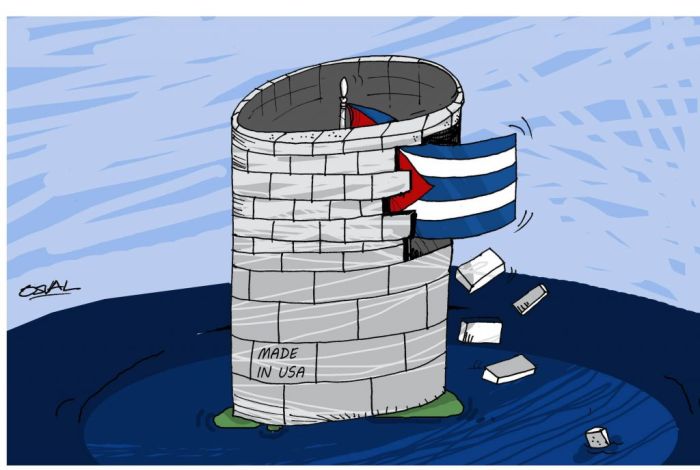On February 26, in several American cities such as Miami, Seattle, New York and Minneapolis, as well as in other Latin American cities such as Caracas, Santo Domingo, Panama City and Montevideo, demonstrators rejected the unilateral coercive measures against the island.
It was the beginning of seven days marked by the continuity of the electoral process, which on March 26 will submit to the polls 470 candidates for deputies to the National Assembly of People’s Power; and also by the reception of high-level visits and a wide activity in international scenarios.
On March 1, the leader of the Cuban Revolution, Raul Castro, and President Miguel Diaz-Canel received the Secretary of the Russian Security Council, Nikolai Patrushev, who paid a working visit to Cuba.
Meanwhile, yesterday, the Cuban president talked with the head of the Chamber of Senators of Bolivia’s Plurinational State, Andronico Rodriguez, and with the president of the International Olympic Committee, Thomas Bach.
With the first, the conversation revolved around the strengthening of historical ties between both nations and the achievement of new common projects, while the second expressed admiration for the work of the island in sports, where it has won more than 200 Olympic medals with only 11 million inhabitants.
Outside Cuba’s borders, Cuban Vice President Salvador Valdes took part in the Non-Aligned Movement (Mnoal) Summit on recovery after the Covid-19 pandemic, where he invited the members of the group to use the island’s biotechnological medicines and ratified the willingness to support the anti-Covid-19 vaccination campaign wherever necessary.
 Escambray ENGLISH EDITION
Escambray ENGLISH EDITION





Escambray reserves the right to publish comments.